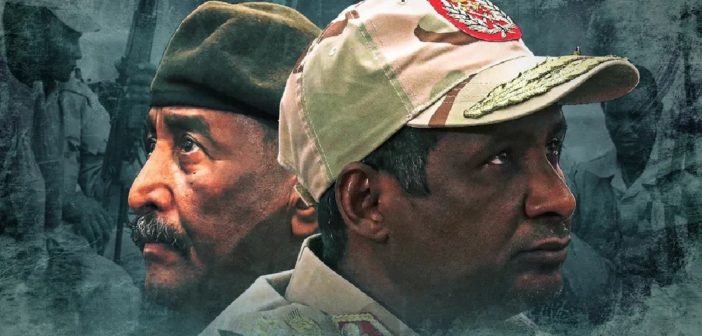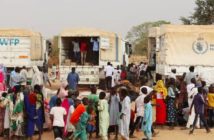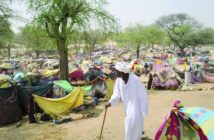The most important actions should be taken politically, if not militarily at international level, a decisive peace process to put an urgent end to the tenth month’s ongoing brutal war in Sudan. Despite the catastrophic consequences resulting from the indecisive fighting between the two rival Sudan Army and Rapid Support Forces, there’s no active plan to reach a peace deal. Last week, both fighting forces leaders Generals stubbornly announced that to continue fighting until a blatant triumph was attained by refueling the war channels by all possible means including all-out war to crushed each other.
The impact of the Sudan war has complicated the political process both internally and internationally which in turn added another uncertain dimension. The Sudanese political scene with its multifaceted conflicting reluctantly by nature or inherited dysfunctional political debacle wasn’t ready to accept peace as an issue at debate. Generally, the civil political parties have been the weakest round, widely being consolidated by military institutions. Such a situation has made a long political vicious cycle to overstepped a civic reconciliation that has affected Sudan political history.
Currently, the path to peace is blocked by what could possibly be described as a state of highly war scale—these demands, among other factors, a clear political vision. Peace is not a mere desire to be implemented over one night, there’re high sacrifices to be made. Firstly, all war involved parties have to estimate rationally not politically the responsibility they should be aware of how they mistakenly brought up a disaster to their country instead of stability. Secondly, the war has created an unprecedented military and politically polarization among Sudan social fabrics.
All proposed peace plans or roadmaps being presented by Sudan’s neighboring countries at regional level have been denied by Sudan’s de facto government (military) and on the other hand, there’s no recognized national peaceful effort capable of addressing the ongoing crisis. The only reliable initiative remined is Jeddah Talks led by Saudi Arabia and the United States in order to gather both warring parties into a negotiation table. Regardless, too many indirect sessions conducted by the facilitators but, peace still is in distance. No party whether the army and Rapid Forces haven’t neither will nor a vision to make peace reachable. If any quest for peace doesn’t include a humanitarian crisis would inevitably fail, for there are social transformations being made by war.
As the war escalates to an uncalculated degree, the humanitarian crisis is deepening. International humanitarian agencies have warned of a famine that would threaten a third of the population. To overcome the humanitarian crisis which in itself required a set of security plans on the ground to make humanitarian aid accessible. This seemed to be difficult in the absence of state authority and administrative control. Then the peace issue has been doubled as the military and humanitarian issues have gotten worse. The challenge is not only a political one, it has become a combination of unresolvable problems. Sudanese political activists must have enhanced their role in the peace process, their voice would be a crucial one to adding a civic perspective to the peace debate.
The military junta of Sudan authority is not willing to enter any serious peace dialogue. It insistently opted for a war solution as a last resort, regardless of the fact that this unacceptable way would destabilize the nation’s social cohesion. The question is why do both fighting parties defy the world at large? The answer is that the brutality of war and vast violation of human rights without accountability have indirectly encouraged the war leaders to go freely.
The search for a road map has been complicated due to the reality being created by the war. This is to include the interior and external factors. The position of the power of the military authority that dominates the state is revoking any peaceful deal with the opposition civilian forces. It seems that the army’s political positions are now out of its organic role in defense and preserving security. This new role, although it is not surprising, the nature of the military governments, is that it is no longer in the circumstances of the current war required. No institution or any political body can search for a solution or impose it does not take a civil voice in the network of the Sudanese political spectrum.
###




